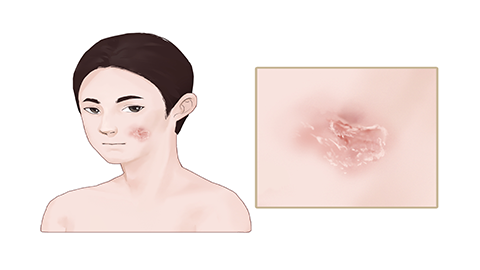Will a skin abrasion on the face leave a scar?
Generally speaking, a scar refers to a mark left after the healing of a wound or injury. Whether facial skin abrasion will leave a scar depends on the specific circumstances. If the abrasion is shallow and properly treated, it usually does not leave a scar; however, if the abrasion is deep or improperly managed, a scar may form. A detailed explanation is as follows:

If the depth of the facial abrasion is limited to the epidermis or a very superficial portion of the dermis and is properly managed, scarring typically does not occur. The epidermis has a self-repair capability, and newly generated cells will gradually replace damaged ones, allowing the skin to recover to a nearly intact condition. In such cases, it is important to promptly clean the wound with a gentle saline solution to remove dirt and foreign substances and prevent infection. After thoroughly cleaning the wound, appropriate medications may be applied based on the wound's condition, such as ointments that promote wound healing and reduce scar formation.
However, if the facial abrasion reaches deeper into the dermis or even beyond, or if the wound is improperly managed, the likelihood of scarring increases. The dermis contains structural components such as collagen and elastic fibers. Once damaged, scar tissue may form during the healing process to fill the wound. Additionally, wound infection can intensify the inflammatory response and interfere with normal wound healing, thereby increasing the probability of scar formation.
During the wound healing period, proper local care should be taken to avoid infection, and a balanced diet should be maintained to promote skin repair and recovery. If signs of scar formation are noticed after the wound has healed, prompt medical attention should be sought from a qualified physician.





